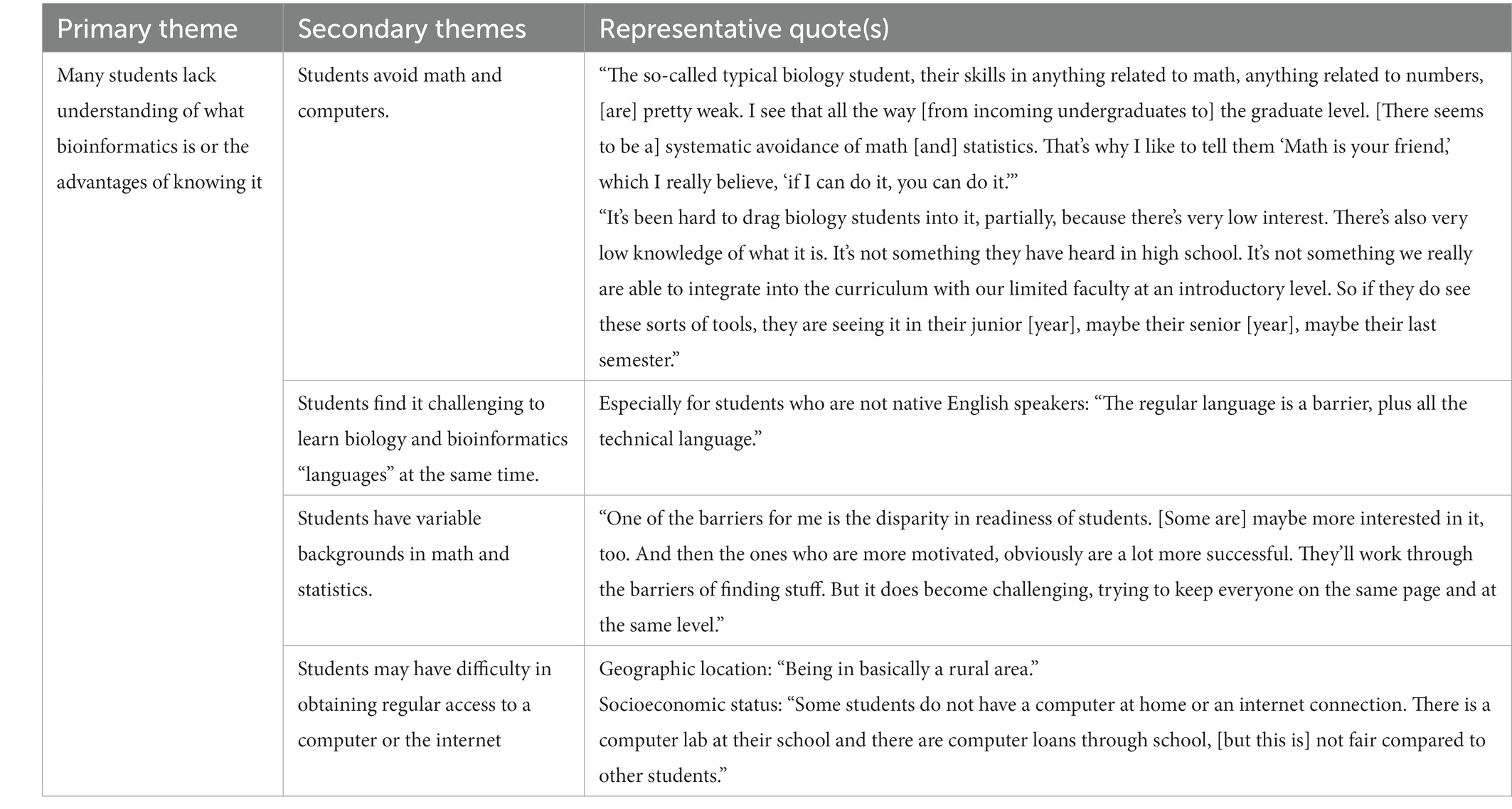The Single Strategy To Use For Bioinformatics Tutor
The Single Strategy To Use For Bioinformatics Tutor
Blog Article
Bioinformatics Tutor - An Overview
Table of ContentsAn Unbiased View of Bioinformatics TutorSee This Report about Bioinformatics TutorThe Ultimate Guide To Bioinformatics TutorAbout Bioinformatics TutorRumored Buzz on Bioinformatics Tutor
Of the total individuals involved in the training, 80% were pupils from public higher education organizations, while the remaining 20% came from private institutions. To certify for a certification of engagement, students were required to participate in at least 90% of the total training hours. As an outcome of this requirement, a remarkable 95% of the participants efficiently obtained their certifications, having not just satisfied the minimum presence requirements yet also finished all appointed activities throughout the training.
During the elevation of the COVID-19 pandemic, specifically in between June and August 2020, the job group was tasked with arranging specialized training in bioinformatics. This training was particularly targeted at students from the study group Core for Research study in Applied Computer at the Federal University of Pará (UFRA) The adjustment to remote understanding systems because of the pandemic created an opportunity to explore brand-new training methods and electronic tools that improved both reach and performance.
This program was designed to give an obtainable yet detailed summary of Artificial Intelligence techniques, particularly as applied in bioinformatics (Bioinformatics Tutor). This online format made it possible for engagement from trainees throughout Brazil, numerous of whom might not have had the chance to attend in-person sessions.
The Only Guide to Bioinformatics Tutor
A noteworthy function of this training course was its emphasis on hands-on discovering. Approximately 50% of the overall training hours were committed to useful tasks where students developed smart models and applications in a variety of clinical domain names, consisting of genes, molecular biology, and ecological data analysis. Commonly made use of devices and frameworks such as Spyder, Google Colab, Jupyter Notebooks, and Orange were integrated right into the coursework. These systems enabled pupils to take part in real-time data adjustment, design training, and algorithm testing.
The training course attracted 80 individuals in total. Sixty of them were affiliated with different college organizations in the state of Pará, while the staying twenty originated from institutions located in five various other Brazilian states. This wide geographical depiction highlighted the nationwide passion in bioinformatics and the expanding need for specialized abilities around. By presenting Artificial Knowledge in a functional and appropriate context, the effort offered to connect the space between theory and real-world application, offering students with a solid foundation for future research or work in the area.
The training campaign developed part of a wider academic outreach initiative called the Bioinformatics when traveling job. This project has, over the years, presented lots of students to the globe of bioinformatics and computational biology. The events held under this umbrella campaign have taken place across numerous regions and years, as summarized in Table 1 (Checklist of occasions, locations, years, and overall varieties of students and instructors)
Among the most impressive results of the Bioinformatics when driving campaign has been its payment to the growth of decentralized study groups. Several of these teams, at first combined by their involvement in training occasions, have because taken place to generate independent scientific research study in partnership with neighborhood scholastic establishments. The training not just fostered scientific reasoning within the context of bioinformatics but additionally triggered collaborative connections that prolonged past the training environment. These Find Out More partnerships have actually resulted in raised local clinical performance and contributed meaningfully to the advancement of the wider bioinformatics community in Brazil.
Getting The Bioinformatics Tutor To Work
The very same group, omitting IH and RR, likewise acted as tutors for the useful training components. Financing for the job was offered through the give 88887.200562/ 2018-00 from CAPES.
The Federal College of Pará's Workplace of Research study (PROPESP/UFPA) also gave monetary assistance, particularly for the production of the final manuscript. The writers declare no business or financial problems of rate of interest that might have affected the study. Additionally, all analyses and opinions expressed in this short article are only those of the writers and do not necessarily reflect those of their corresponding institutions, the author, editors, or customers involved in the publication procedure.

How Bioinformatics Tutor can Save You Time, Stress, and Money.
From an instructional point of view, the training method made use of in the training was deliberately interactive. Courses were carried out in a fashion that encouraged trainee engagement and discussion, exceeding rote memorization to check out just how ideas are established, used in day-to-day live, and checked in academic settings. The educational philosophy concentrated on supporting both strong and having a hard time pupils, offering customized assistance, and building confidence via sustained mentorship and patience.

Each group, consisting of approximately 36 individuals, was sustained by 3 mentors-- many of whom were postdoctoral researchers with customized experience. These coaches not only assisted design the team projects yet also promoted their execution, ensuring that each research question was both appropriate and properly difficult. The objective was to supply a naturally realistic context that participants can discover with flexible objectives and access to curated datasets.
For This Site additional understandings right into the methodology and outcomes of this project-based discovering method, readers are directed to S1 Text, which includes thorough descriptions of the pedagogical structure, assessment approaches, and project styles used in the training sessions.
The Greatest Guide To Bioinformatics Tutor
Of the total participants included in the training, 80% were students from public higher education and learning organizations, while the continuing to be 20% came from private institutions. To certify for a certificate of engagement, students were required to attend at the very least 90% of the total training hours. Significantly, past the trainees who enlisted in the training sessions, seven experienced trainers participated in delivering the courses, while three dedicated research teachers worked with the total training procedure. Around 50% of the overall training hours were devoted to useful activities where additional reading students constructed smart versions and applications in a range of clinical domains, consisting of genes, molecular biology, and ecological information evaluation. The training not only promoted scientific reasoning within the context of bioinformatics yet likewise stimulated collaborative relationships that expanded past the training atmosphere.
Report this page